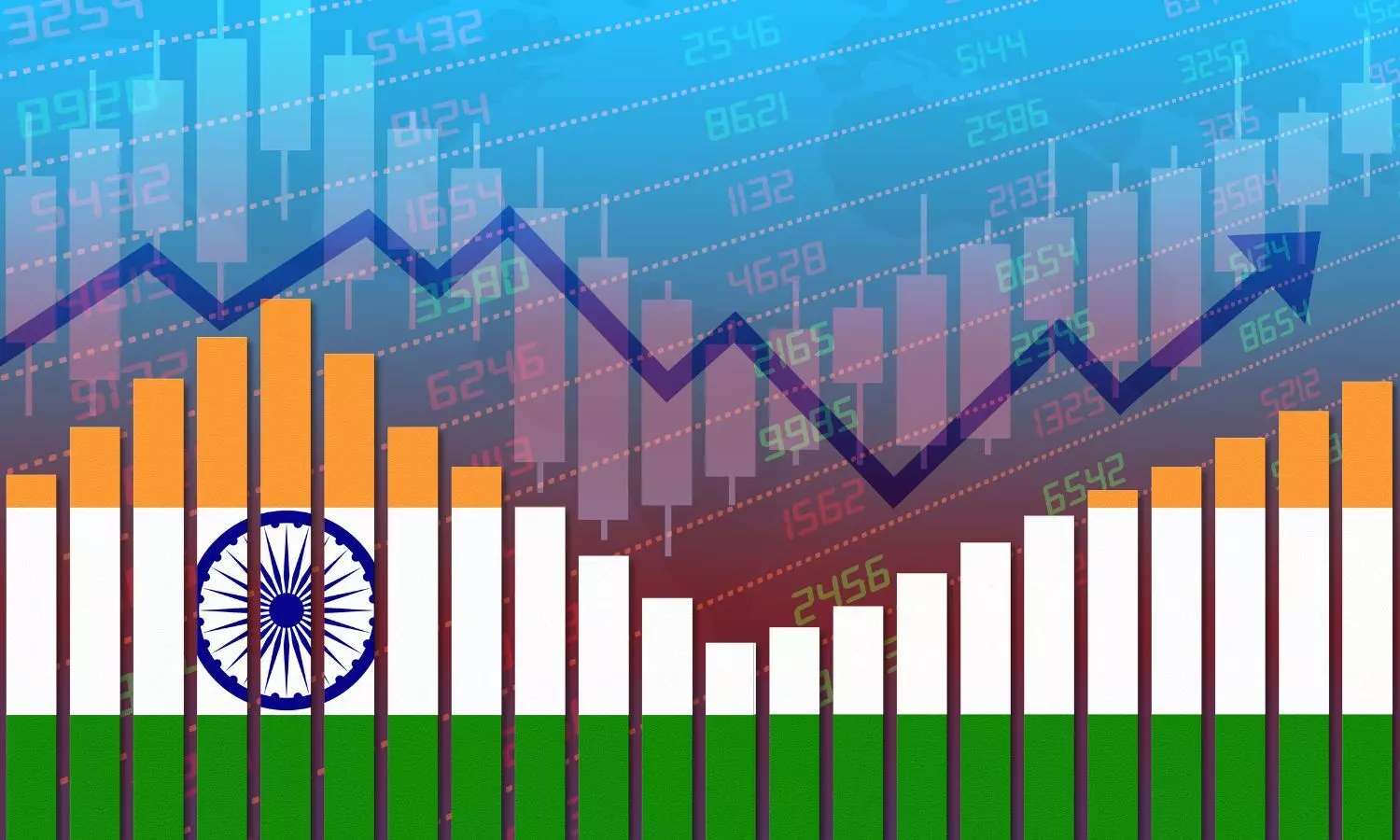Live
- Gujarat govt unveils Surat economic region plan, to create 3.4 million jobs by 2047
- Scholarships For Students
- Amazon Great Indian Festival 2024: Amazon.in Announces 40% off on Smartphones & Accessories
- Adani Group Announces Rs. 25 Crore Aid for Flood-Hit Andhra Pradesh
- Sudheer Babu’s Emotional Father-Son Song ‘Nanna’ from Maa Nanna Superhero Released
- Nani and Director Srikanth Odela Reunite for ‘Nani-Odela 2’
- Chandrababu remarks on Tirupati laddu, minister Dola says will conduct probe, YSRCP denies allegations
- MTV Dark Scroll: Unveiling the face of fear with Amit Sadh
- Australians advised to leave Lebanon immediately after deadly device explosions
- FNCC Donates Rs 25 Lakh to Chief Minister’s Relief Fund for Flood Victims
Just In
How India is Cementing Its Role in the Global Venture Ecosystem Amid Changing Investment Trends


India's venture ecosystem is adapting to global investment trends with a growing focus on venture debt, navigating economic uncertainties and positioning itself as a key player in the global market.
India's venture ecosystem is undergoing fast evolution and adaptation toward global investment trends, cementing its position as a leading player in venture landscapes. Despite economic turbulence and shifts in investor priorities, at the end of this stormy year, the venture-debt market has scaled $1.2 billion, reflecting not just its resilience but ever-growing sophistication in financing solutions. The industry, according to Stride Ventures, witnessed 50% year-over-year growth as 175-190 deals took it toward a compound annual growth rate of about 34% between 2017 and 2023. This was, indeed, truly reflective of how venture debt, as a financial tool, is coming into vogue for founders, venture capitalists, and investors, who increasingly look for diversified and simplified funding amid an increasingly volatile global market.
Venture debt, unlike equity funding, is a lifeline strategy for startups mainly when they are still trying to prove their revenue-generating capacities. The approach to funding falls between equity and traditional loans because it offers capital that does not dilute ownership stakes, but the specialized lenders take a greater risk for the possibility of a greater return. In such a scenario, venture debt is the very mechanism on which growth can rely and is of great importance in a capital-scarce environment. Now, with this surge in such funding alternatives, the maturation of the Indian startup ecosystem can be accounted for since entrepreneurs now have access to subtle financial instruments carefully engineered to cater to their exact needs.
It is not just the growth of the venture-debt market but the significance lies in how India keeps peaking in the global venture ecosystem. While in terms of the number of startups, the country remains ranked third in the world, sharp venture capital investments dropped to $8.2 billion in 2023, from $25.9 billion in 2022. Reflecting broader market conditions, investors are adopting a more cautious approach due to global economic uncertainties. Recently, there has also been a downturn in venture capital, particularly affecting late-stage and seed-stage investments. While early-stage funding plummeted by 68% and seed-stage investments fell by 57%, the biggest impact was felt on the late-stage startups, with funding plummeting to 70%. However, even as such contractions grip India's venture landscape, several investors see long-term potential in India's ecosystem.
The only reason why India remains relevant in the global venture space is through adaptation and pivoting. In light of continued declining streams of venture capital funding, an increasing bet on venture debt and an upward preference for integrated financial packages present the various ways that startups now approach fundraising. Of course, rather than simply leaning on equity, most now look toward debt solutions that enable them to scale without sacrificing too much control over their companies. As one may see, the new shift also reflects growing entrepreneurial confidence in India because founders and investors alike look for new roads in growth and sustainability. Being able to be above the billion-dollar mark today in the venture-debt market is a testament to this change in mindset, because India is no longer only a recipient of capital, but is also innovating the structure and deployment of capital.
India continues to remain one of the top global destinations for international capital flows, albeit with a slowing momentum. A strong talent pool, a rising digital economy, and improved alignment with the global standards of innovation place the country nicely in a position to bounce back from the current downturn. Yet, the slowdown in VC funding must be seen less as a long-term contraction and more as a recalibration in the wake of the global financial shifts. All this should mean renewed interest in India's startup ecosystem, and for good reason: It continues to solidify its place within the broader global venture ecosystem through innovation in financial solutions such as venture debt. With innovative entrepreneurship, the maturity of the financial ecosystem, and a deep talent pool, India is all set to consolidate leadership in the venture ecosystem.
(This article is authored by Mr Appalla Saikiran, Founder & CEO, SCOPE)

© 2024 Hyderabad Media House Limited/The Hans India. All rights reserved. Powered by hocalwire.com






